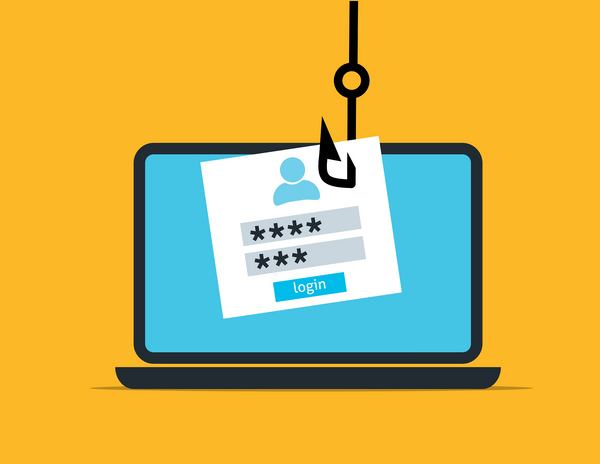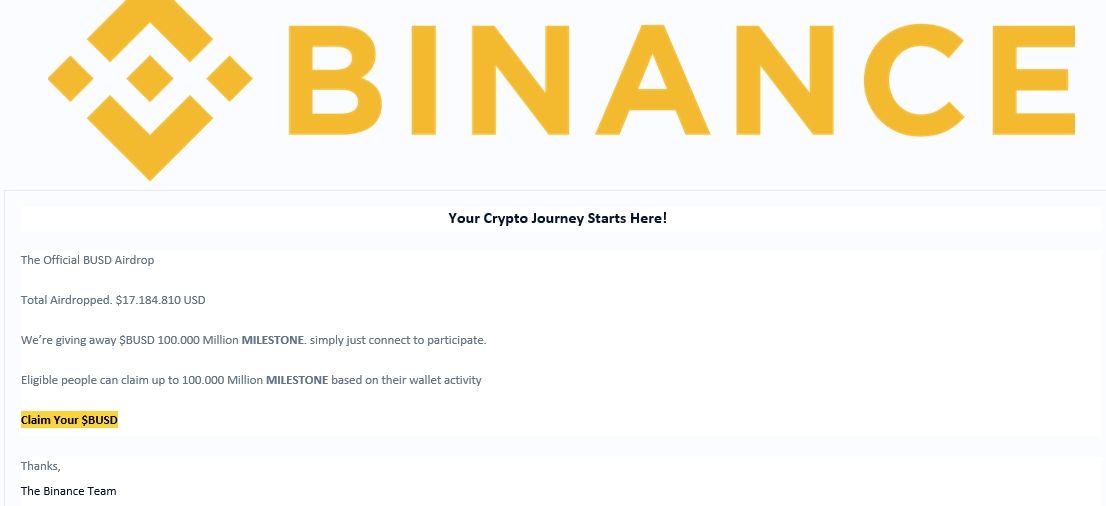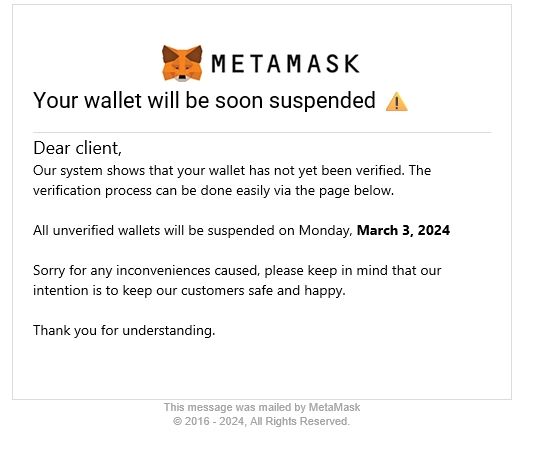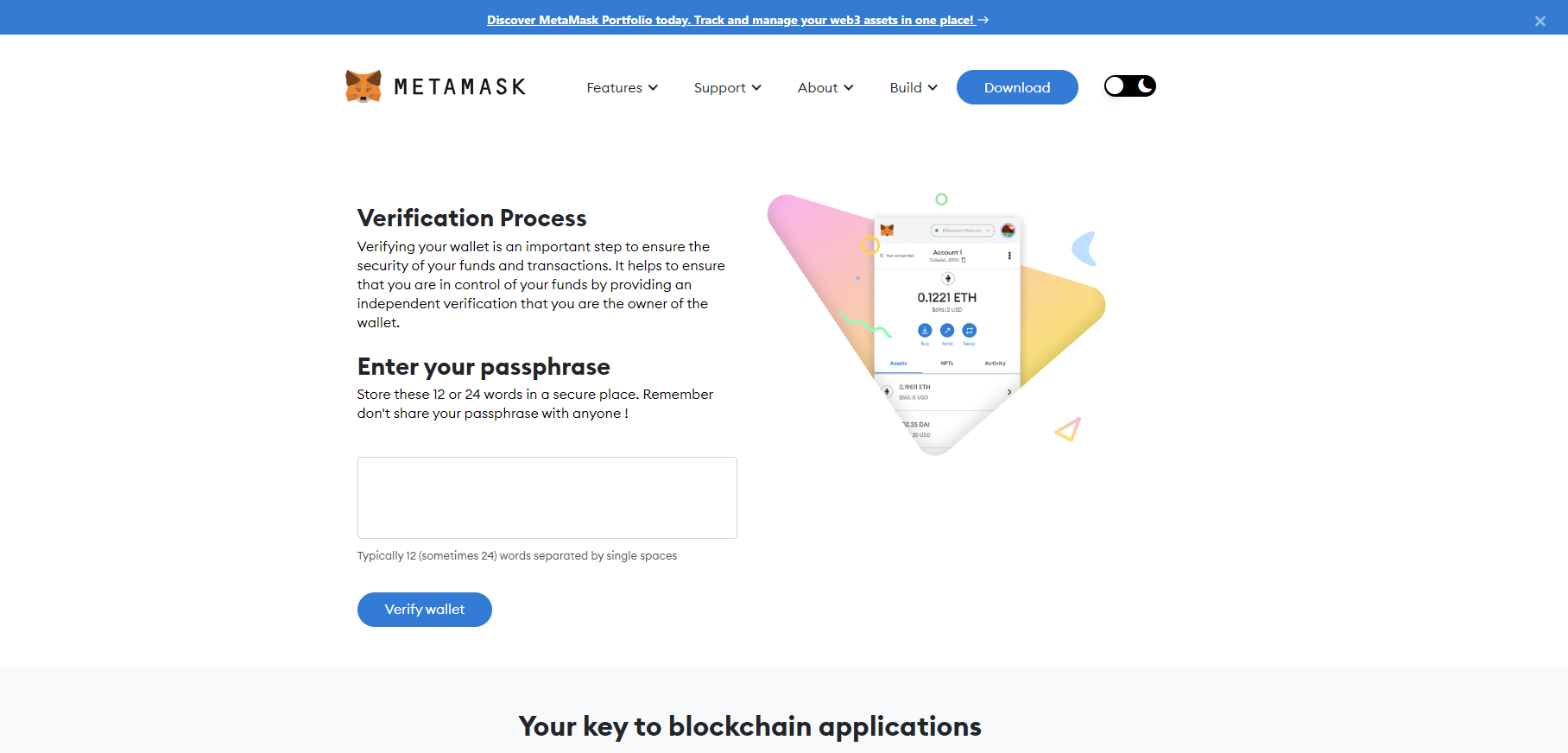Spam trends of the week: Scammers phish for crypto wallet and social media credentials

Scams come in many shapes and sizes. Some reach recipients via phone, social media or text, while others seek victims via traditional email.
Cybercriminals can do a lot of damage once they get their greedy hands on your email addresses, including targeting you with sophisticated phishing emails.
In this month’s first “spam trends of the week” episode, we attempt to delve into the email-based scams that threaten your privacy, identity and digital assets.
Here’s our take on some scam trends you need to be aware of:
Crypto phishing scams
Scammers often use the image of popular crypto exchanges and wallet platforms to defraud users. Bitdefender Antispam Lab has caught multiple crypto-themed phishing emails mimicking legitimate correspondence from Binance and MetaMask.
Scammers have sent emails promoting unique BUSD airdrop events benefiting existing token holders.

Upon interacting with the fraudulent emails, users are directed to a fake platform where they are required to connect with a compatible cryptocurrency wallet.


A separate campaign disguised as an urgent email from MetaMask warns recipients their crypto wallet is about to be suspended because it has not been verified, and urges immediate action from the user.

Recipients are led to a fraudulent MetaMask website asking them to provide their secret passphrase. This action would ultimately allow cybercrooks access to their wallet and funds.

Phishing for social accounts
Social media accounts are another coveted asset that fraudsters steal from unwary internet users. They make for an ideal platform to spread scams, fraudulent ads and misinformation. Once again, scammers are eager to snatch login credentials and personal information from LinkedIn and Meta users.
LinkedIn users were baited with messages allegedly sent from a potential collaborator/buyer, while Facebook business users continued to receive bogus warning messages about violating specific community standards related to their business activity.




One scam email is all it takes to compromise your digital wellbeing
Protecting your inbox and dodging scams can be hard work, but not with Bitdefender.
Use Bitdefender Scamio, our free scam detector service, whenever you’re unsure about the legitimacy of an unsolicited message or spam email. Have a chat or upload a screenshot of the correspondence you’re uncertain about and get an immediate response. Scamio is our AI-powered scam detector that employs our award-winning threat detection to help you outsmart scammers.
You can also opt for one of our all-in-one security solutions to protect all your devices from malicious and fraudulent activity while benefitting from:
- Award-winning antimalware protection
- Advanced anti-fraud and anti-phishing filtering systems that warn you whenever you visit a website that may try to defraud you
- A new and free layer of defense dedicated to fighting dangerous emails called Bitdefender Email Protection that integrates with your Gmail and Outlook to watch over your mailbox and protect your money and credentials
- A handy and trustworthy password manager
- Powerful VPN and a digital identity protection service to boost your privacy and safeguard the digital you
tags
Author
Alina is a history buff passionate about cybersecurity and anything sci-fi, advocating Bitdefender technologies and solutions. She spends most of her time between her two feline friends and traveling.
View all postsRight now Top posts
Start Cyber Resilience and Don’t Be an April Fool This Spring and Beyond
April 01, 2024
Spam trends of the week: Cybercrooks phish for QuickBooks, American Express and banking accounts
November 28, 2023
FOLLOW US ON SOCIAL MEDIA
You might also like
Bookmarks







